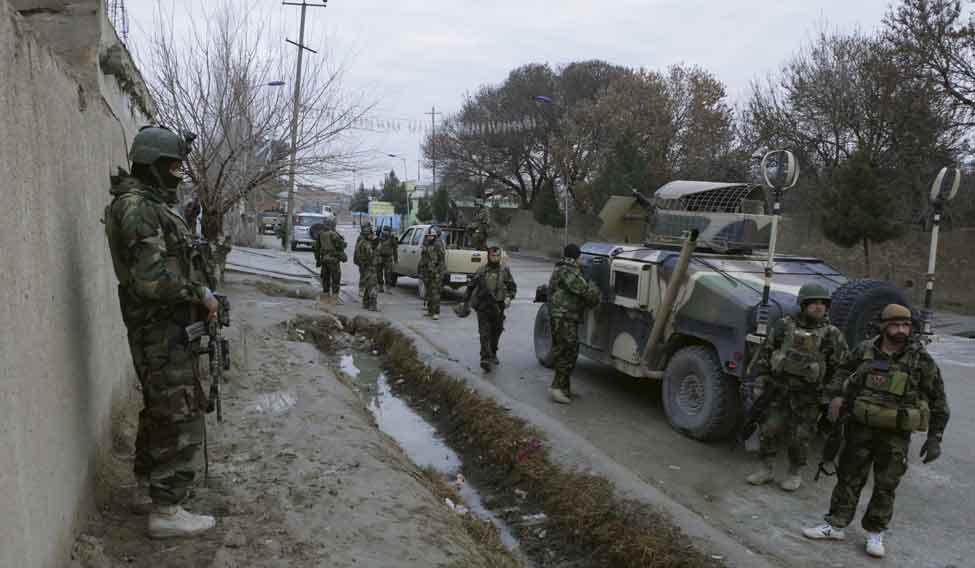Less than 20 hours after terrorists attacked the Pathankot Air Force Station, the Indian consulate in Mazar-e-Sharif in Afghanistan came under fire. Four men, armed with rocket launchers, hurled grenades at the building and tried to climb over the gate. It was 9:15 at night.
The jawans of the Indo-Tibetan Border Police Force (ITBPF), stationed at the perimeter of the consulate, heard the blasts and retaliated. Two militants were brought down. Firing continued. An hour and a half later, the Afghan special forces arrived on the scene. The battle, which continued throughout the following day, saw even the governor of the province, Atta Mohammad Noor, wield a gun to neutralise the terrorists.
No group has staked claim to the attack. The timing of the attacks at Mazar-e-Sharif and Pathankot seems to be more than just coincidence. This is the sixth attack on an Indian embassy or consulate in Afghanistan in seven years. The most audacious one was in Kabul on July 7, 2008, when a suicide bomber rammed a car full of explosives into the wall of the Indian embassy, killing more than 40 people. Four Indians, including the defence attaché, lost their lives. In 2014, as Narendra Modi was being sworn in as prime minister, four militants attacked the Indian consulate in Herat.
Over the years, the attacks have grown in frequency and intensity—notwithstanding the lull of three years from 2010. So far, three of four Indian consulates in Afghanistan have been attacked. Recently, following an Intelligence Bureau assessment, India sent one more platoon of ITBPF to Afghanistan. “Inputs from Indian agencies about possible threats come thick and fast,” said a source.
“Why are Indians targeted? It is because organisations like the Jaish-e-Mohammad, Taliban and Lashkar-e-Taiba, which are controlled by the ISI [Inter-Services Intelligence of Pakistan], are uncomfortable with the Indian presence. There was conclusive evidence that the ISI was involved in the 2008 attack on the embassy,” said Rakesh Sood, former ambassador to Afghanistan.
The attack at Mazar-e-Sharif, a province that has a tough governor in Noor, points to the resurgence of the Taliban. “The north has become unstable,” said Sood. “This is because of Pakistan’s Operation Zarb-e-Azb. There was an attack on Kunduz, too. There has been talk of it being an IS [attack], but the Afghans don’t buy it. They believe it is the work of the Taliban and its allies.”
What this means for India and Modi’s re-engagement with Afghanistan remains to be seen. But one thing is certain: it will be a turbulent year for India.






